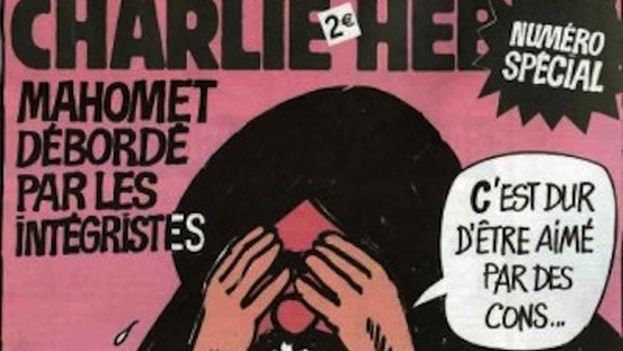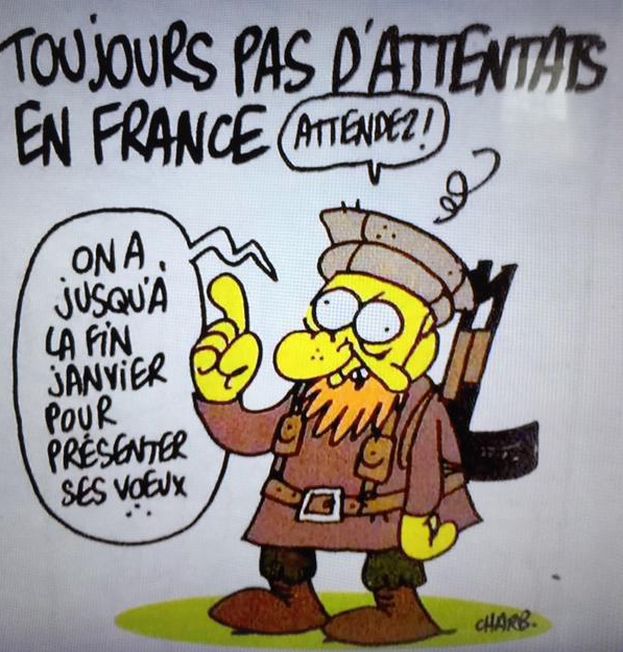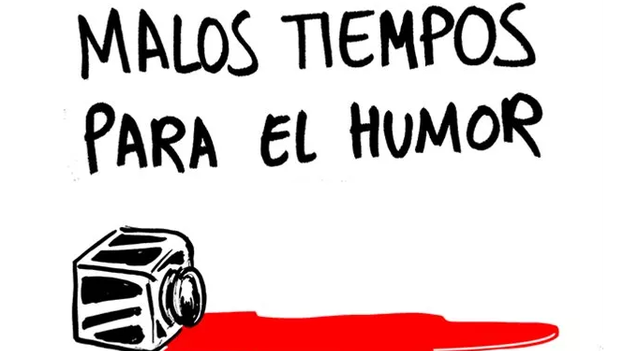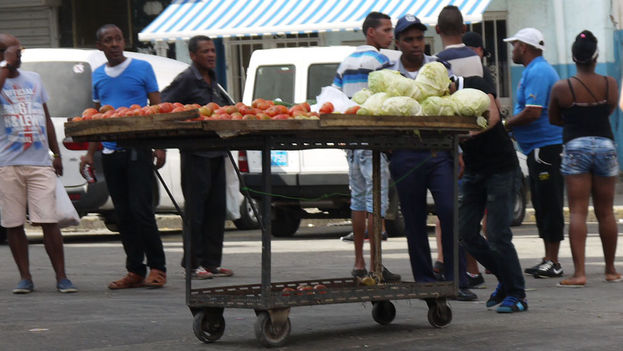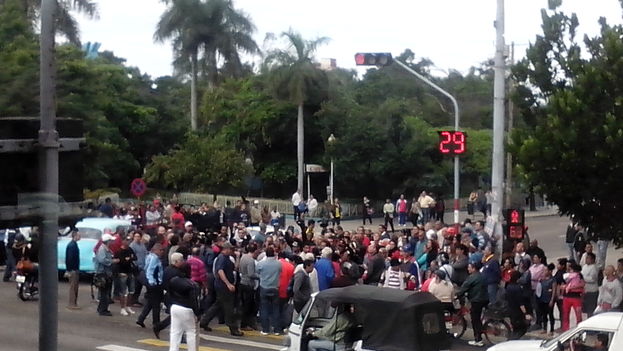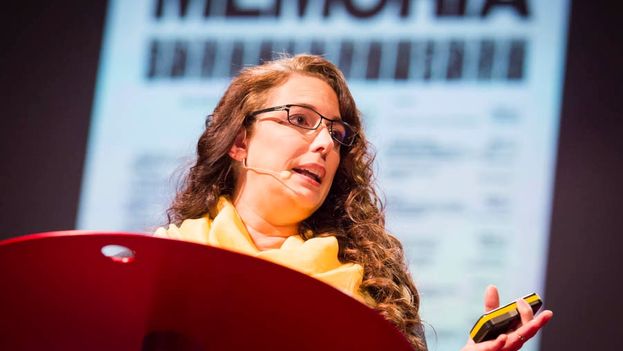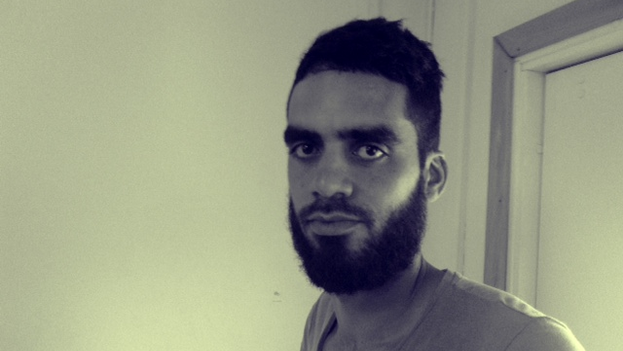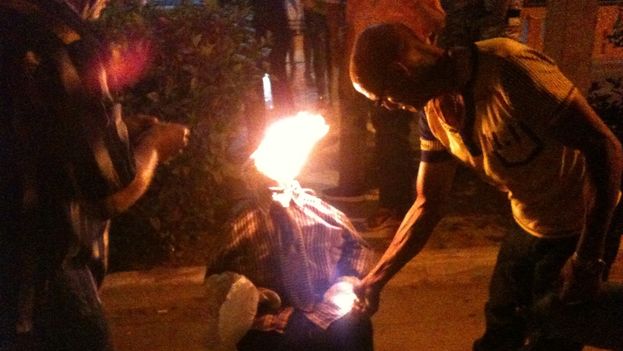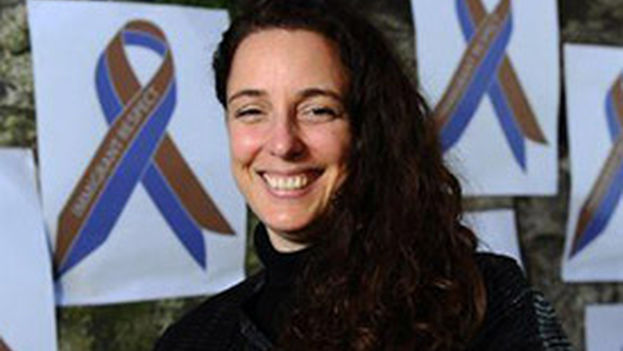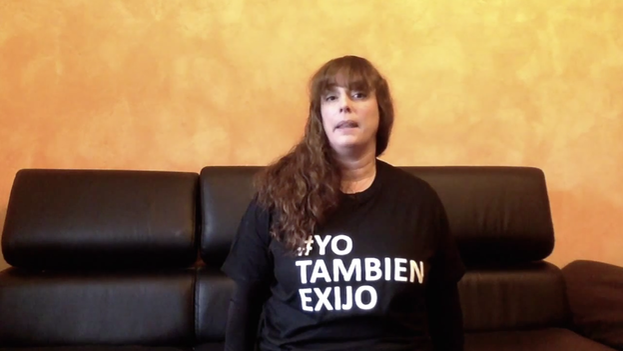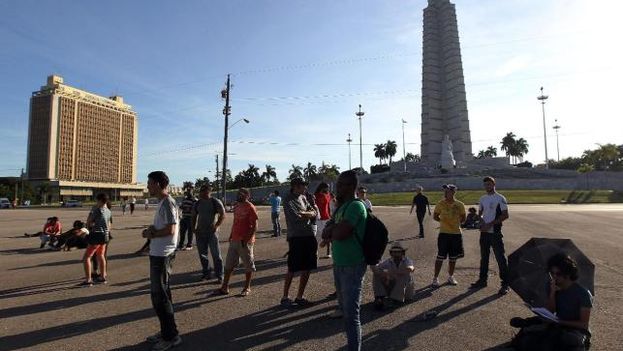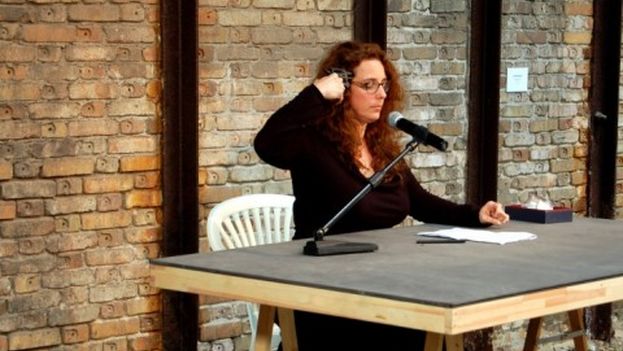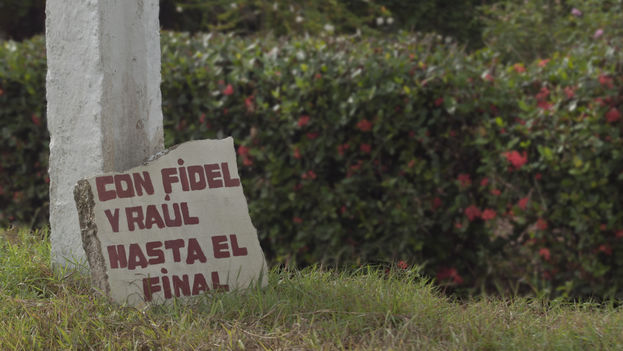
14ymedio, Rosa Lopez, Havana, 8 January 2015 — A poster with Fidel Castro’s face is pasted on the glass of the deteriorated locale. Years ago, some naughty boy painted the whites of his eyes dark and the effect is intimidating, but almost nobody sees it. The man who wanted to be indispensable and omnipresent for Cubans, has come to resemble the air, which few perceive although it is everywhere.
Learning to live without Fidel Castro has been an urgent subject for many Cubans during all these years of the convalescence of the Maximum Leader. Lately, however, the rumors of his death have reappeared and there are those who have dusted off the memories or rushed to close the national chapter where he had too much of a starring role.
Adele’s family was one of the first in the Vibora neighborhood to put the phrase “This is your house, Fidel,” on the door. From then until now, this woman has worshiped the man who, in the photo hanging on the wall of her modest house, wears a beard and a military uniform. “I’m a Fidelista to the death,” she says almost angrily in front of her grandchildren who don’t seem to have come out as fervent as their grandmother. “Here, everything bad that has happened, they’ve ignored it,” explains the lady. For her, the absence of recent months is because “surely, he’s writing some book, his memoirs, or something like that.” continue reading
In a little lost village in the hills of the Escambray, Juan Manuel doesn’t agree. “At best he died a long time ago,” says this 28-year-old peasant who lives in one of the concrete buildings in the area where “reliable people” were moved after the events of the Escambray in the seventies. Although he comes from a military family, the young man shows little interest in politics and speaks of Fidel Castro in the past tense. “I saw him once when he passed through here in a jeep, but then he was a man full of energy,” he says, making an effort to remember.
Others, more savvy, note how long it’s been since the Maximum Leader has appeared on national television. “For about a year they haven’t even shown a live and moving image of him. Lately, we haven’t seen anything but stills,” says Miguel, a member of the Communist Party who sells discs with music and movies on the streets of Cerro. “If Raul has been able to arrange things with the yumas [Americans] it’s because he must already be very sick,” he theorizes and when he mentions the personal pronoun he makes a slight gesture with his hand making a beard on his chin. Everyone listening knows who he’s talking about.
However, beyond the speculations, passions and indifference, there are realities that point to the fading of the figure of Fidel Castro and his role in national life. For more than a year, he’s not been among the characters of any of the jokes on the street, although the stories of Pepito with Fidel Castro have flooded Cuban imagery from decades. Nor have there been any new nicknames for this man who came to have a list of dozens of epithets, insults and nicknames. It’s also significant that they haven’t hung the nickname of the latest soap opera villain on him, although lately there are several of these soaps on the small screen. Fidel Castro is dead in the collective imagination.
Ana Maria was born with the new millennium and now she’s finishing high school. “Yes, in the textbooks there are a lot of phrases with him,” explains this teenager who belongs to a generation that only remembers a convalescent Fidel Castro. “My grandfather told me some things about how it was before, that he gave several hour long speeches,” she says as if she were speaking of something very remote. If you ask her about the long time since the one-time president has appeared in public, she just shrugs her shoulders as if she hadn’t thought about it.
A prophetic joke is coming to pass. It said that in the Cuban encyclopedias published in the year 3000, the entry for Fidel Castro would have a brief entry. “Politician of the era of the Van Van orchestra,” say those who jokingly repeat this gag. For those born in recent years, the Commander in Chief will be remembered as an old man who appeared sporadically in photos, wrote about moringa and dressed in a tracksuit.
“The truth is that ‘The Five” have been here a lot of days and he hasn’t come out to even give them a hug, it’s a clear signal,” says the physiotherapist who talks with the old people who come the central Havana polyclinic every morning. “People come here with all kinds of stories, that he’s had a stroke, that they’re going to disconnect the machines after January 8, that he’s frozen, but I will believe it when I see it.” To conclude, and while helping a lady up from a chair, she says, “I have lost count of how many times we’ve buried him.”
Outside the Hotel Inglaterra, a foreign journalist asks a young woman: “What will happen if Fidel Castro dies?” His poor Spanish has led to the frequent mistake of saying “if” instead of “when,” which would be correct in this case. One wrong word and the reporter has left open the possibility of immortality.
The legends of a vital return are also mixed with speculations in the last weeks. “This, this is hoping that we think that it’s cool to return,” explains the custodian of a warehouse near the Almendares River. His hypothesis is shared with an old ousted official. “No, until January 10 he’s not going to reappear because he’s resting,” he says, while saying his source is very close.
The last years of Fidel Castro are happening among rumors, speculation and forgetting. There are signs that the news about his end will not have the social or political repercussion that it would have caused decades ago.

